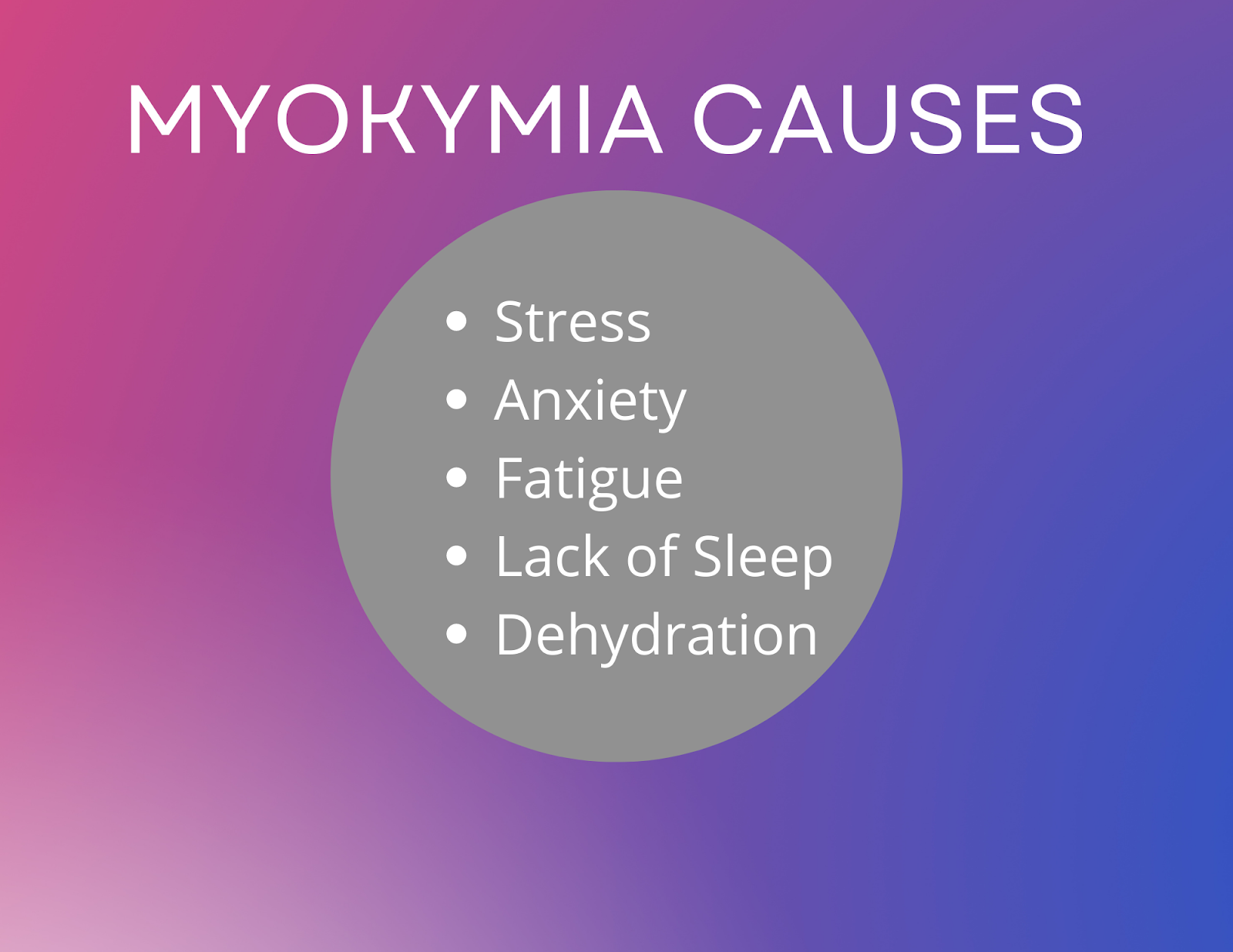Causes, Symptoms, and Treatment for Myokymia
Myokymia can have lots of different causes and can be hard to diagnose sometimes, in this article you will find all the necessary information to identify and treat your myokymia.


Myokymia is an involuntary, spontaneous twitching of a few muscles or bundles within a muscle that is not enough to move a joint. Myokymia is an umbrella term that can refer to multiple types of twitching. These include superior oblique myokymia, facial myokymia, ocular myokymia, and eyelid myokymia. Eyelid myokymia is the most common, and is the kind we deal with at Eyes Now.
The muscle spasms usually affect the lower eyelid but can also affect the upper, or both eyelids. It affects healthy people and usually disappears on its own. These twitches last anywhere from a few minutes to hours.
Medical specialists do not consider the disease to be significant or cause for concern because it usually resolves on its own. For this reason, treatment for twitching eyes is usually unnecessary. However, some patients report dealing with symptoms of severe myokymia for months. This is when looking into treatment would be recommended.
Causes of Myokymia
There are several potential causes of myokymia. The most common triggers are stress, fatigue, anxiety, exercise, and caffeine consumption (Jafer Chardoub AA, Patel BC). To prevent myokymia, it is important to avoid these triggers. If avoiding these triggers is impossible, it is important to try and manage them. For example, if your eyelid twitch is caused by stress, try some relaxation techniques.
Twitching eyes can also be caused by neurological disorders such as epilepsy, multiple sclerosis, and cerebral palsy. During your visit with Eyes Now, it is important to let us know about any preexisting conditions you have, because they can be responsible for the issue at hand.
Eye strain is another common cause of twitchy eyes. If you work at a computer all day, it is very important to take frequent breaks and give your eyes a rest.
Certain medications can also cause myokymia. Beta blockers such as atenolol and bisoprolol, as well as some antipsychotics, can cause twitchy eyes. During your visit at Eyes Now, it is important to let us know if you are on any medications.
It’s important to note that not every single person may develop the same myokymia symptoms. So if you’re having trouble with an eye twitch, be sure to give us a call so we can help find you relief.
Myokymia Treatment
If possible, take breaks throughout the day to rest your eyes. Apply warm compresses to your eyes for 10-15 minutes at a time to help relax the muscles. You can also massage your temples and forehead to help relieve tension headaches. If your symptoms are severe, your doctor may prescribe medication to help relax the muscles around your eyes.
Even though professional treatment for myokymia is usually unnecessary, there are still measures we can take to treat it in severe cases. If your eye twitch is chronic or severe, it can be a sign of a more serious issue. In rare cases, an eye may completely close uncontrollably. This is called a blepharospasm. If this occurs, a botox injection under the affected eye may be necessary (Banik R, Miller NR).

